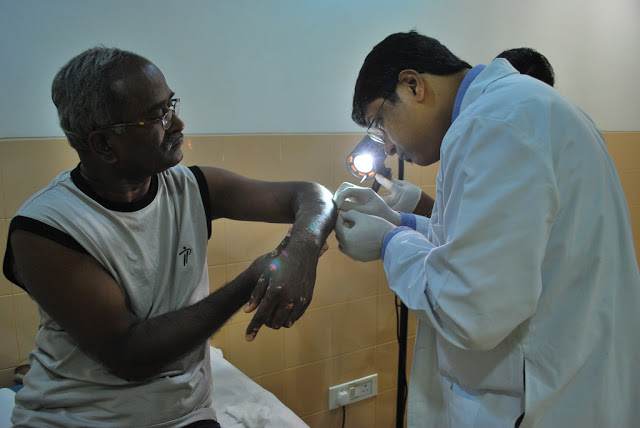If you are a Doctor and a new entrant to the public health service, I must congratulate you first of all for making this decision. As a part of the primary health care system in the country every doctor has been entrusted with many responsibilities, and you are no exception!. In this post I will be making you familiar with those duties and responsibilities. If you are not a Doctor, or a health worker, don’t go away. This post doesn’t contain any unbreakable medical terminologies and can be easily grasped by lay man. Try to make yourselves aware of the functioning of a public hospital.
OPD Duties
Being a Doctor, there is no need to discuss about the Out-Patient Department (OPD) duties. Depending on the level of primary health care, and the facilities available in the hospital, the duty and the timing of the duties varies. For example, in a Primary Health Centre (PHC) the OPD is conducted from 9am to 1pm. In a Community Health Centre (CHC), the doctors would be required to take night duties too. Hospitals which have an Emergency Department (commonly known as the ‘Casualtly’) have 24 hours of service. In most cases, this timing cannot be strictly maintained in any facility, because the patients who are a part of the community may not be aware of the timings and they should be served irrespective of the time at which they request the service even if it is a PHC. There has been numerous issues too regarding this matter in many hospitals. A doctor who is in charge of the hospital (referred to as the ‘Medical Officer’) has to attend to Office duties after conducting the OPD.
 |
| Image Credit – Harsha K R |
Team Leader
One of the most important duty of the Medical Officer is to lead the team of health workers and hospital staff. There are several National Health Programmes (for example, the Universal Immunization Programme) which has to be organised and conducted in a proper way. This requires the commitment of health workers and the supervision of skills of the Medical Officer. Click here to know more about the real Health Workers,
Office Work
The main office duties a Medical Officer should manage include-
- Checking the various cash-books,
- Managing various funds allotted to the hospital,
- Maintaining strict office protocols including checking the attendance register,
- Playing the role of ‘Drawing and Disbursing Officer (DDO) for Salaries/Loans of other hospital employees,
- Responding to communications from the higher offices,
- Sign every letter, communications, file, voucher, bill, receipts, cheques, DDs etc concerned to the hospital,
- Issuing certificates like Medical Certificate, Physical fitness certificate, Age and Life certificates etc.
Project Implementing Officer
Medical Officers (MO) are also charged with the ‘Implementing Officer’ role of many projects of the Local Self Governing Departments (LSGD) which as the name suggests is the local governing body of the community. The functions of the hospital are monitored by these LSGDs. Examples of LSGD include Grama Panchayat, Block Panchayat, Municipality etc. The projects which have been prepared and passed under the budgets of the respective LSGD are mostly concerned with Health and Wellness of the community, The ‘Pain and Palliative Care’ project is such a project which has recently been made a mandatory project for every LSGD by the Kerala Government. Any such health related projects can be implemented by the MO concerned. Purchasing medicines for AYUSH dispensaries, purchasing instruments like wheel-chair, elbow crutches, walking stand etc for handicapped persons are some of the usual projects which are implemented by the MO.
Public Health Officer
The MO is the Health Officer of the community. In this role, the MO has to address any public health issues pertaining in the area. He/She has to conduct raids of eateries, bakeries, cool bars and make sure that the food is being prepared and handled in a hygienic and healthy manner. Public health complaints are looked after by the Health Inspector and the Health Officer of the concerned area. They have the power to take legal actions against violators.
The Health Educator
Stage fright was one thing that I had since my schooling. It was almost forgotten during my college years. But now I can say with confidence that “I have no such problem nowadays”. Do you know why? Because I have conducted numerous health education classes, training classes, attended many meetings as the MO in the past two years. My first such experience came days after taking charge of the PHC and it was an unforgettable experience. Most of these health education classes are conducted at schools and at LSGD meetings. The other two meetings which are regularly conducted every month are the ‘block level review meeting’ and the ‘meeting for MOs at the district level. There was this one time when I had to conduct the Block meeting at CHC Payangadi on the absence of the ‘Superintendent’. We also conduct regular staff meetings at the hospital.These classes and meetings have helped hugely in developing my personality and overcoming my stage fright.
These are some of the main duties which I can come up with right now, This job is challenging, but certainly doable. ‘With great power, comes great responsibilities’ isn’t it?
In our village PHC doctor come at 10am and leave at 11am. 1hr duty is enough for him. Whom should we complant. My village is in kerala.
Hello Geethu,
It’s sad to find that doctors in Kerala are doing such things! It’s really embarrassing! You can write a complaint letter to the “district medical officer” of your district. I would also recommend you to write to the Panchayat president and secretary asking them to take immediate action in this regard. If you need any help, feel free to contact me. Simply leave a comment below or write to me at [email protected]